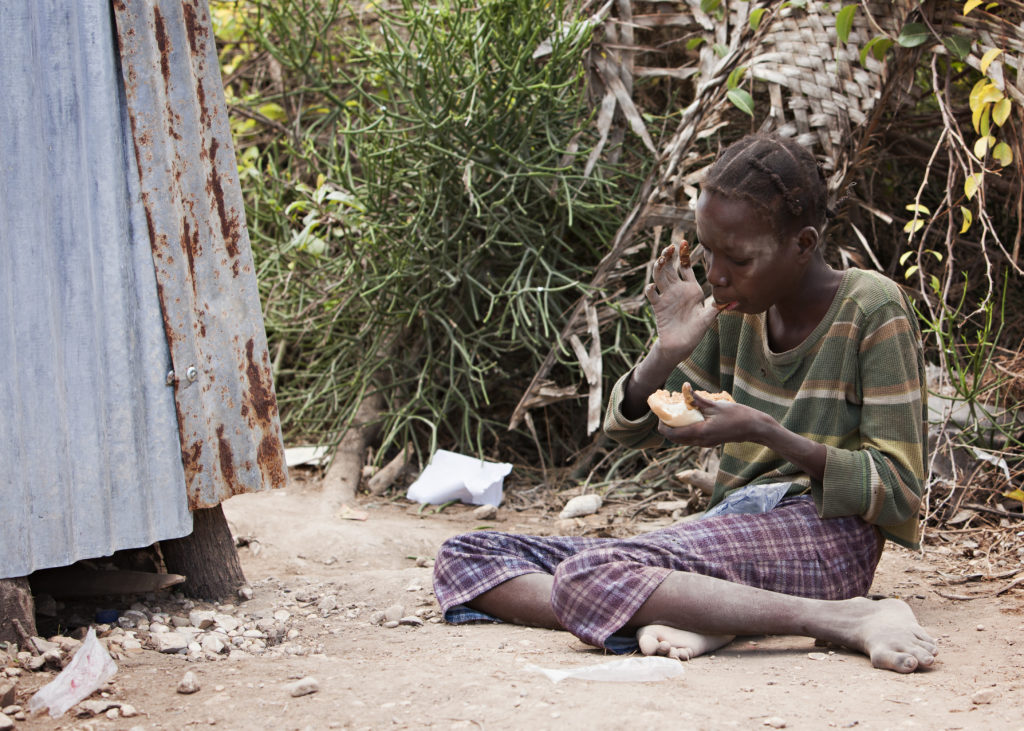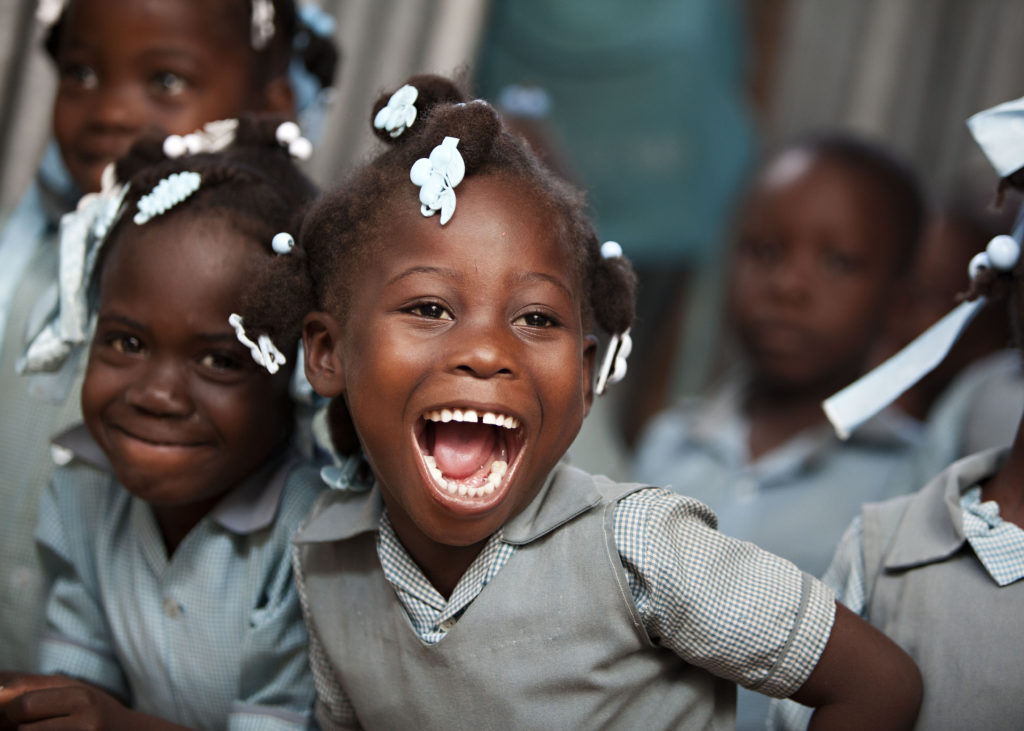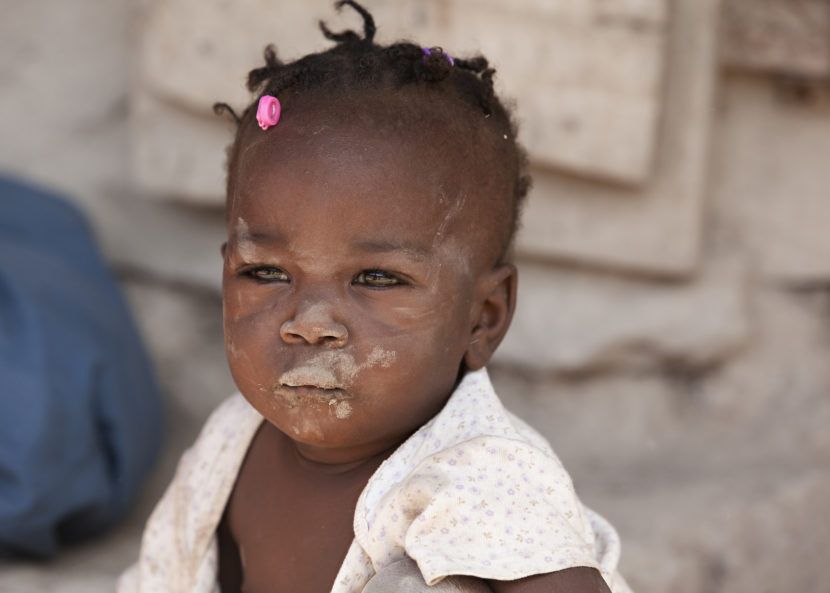Haiti is going through an unprecedented food crisis, exacerbated by persistent political instability and the predominance of gangs. As the famine worsens, it is children who are paying the heaviest price, suffering the direct consequences of this alarming situation. In this chaotic context, gender-based and sexual violence against girls is also on the rise, adding a tragic dimension to an already deep humanitarian crisis.
An unstable political context
The food crisis in Haiti is intrinsically linked to the profound instability affecting the country’s political, economic and health spheres. The assassination of President Jovenel Moïse in July 2021 plunged Haiti into a period of political uncertainty, marked by the absence of a functioning government and the failure of the legislative apparatus (Plan International, 2024).
In addition, Haiti is facing gang wars, particularly in Port-au-Prince, where armed groups control entire neighbourhoods, imposing a climate of terror through kidnappings, assassinations and daily violence. The situation is such that the police, under-equipped and understaffed, are powerless to deal with these over-armed gangs (BBC, 2022).
Added to this are recurring natural disasters, notably devastating earthquakes that have destroyed vital infrastructure, further paralysing an already fragile country (Plan International, 2024). At the same time, environmental factors such as insufficient rainfall and climate change are exacerbating agricultural and health problems, jeopardising the development of agriculture, which is essential to the livelihoods of many families (Plan International, 2024).
Finally, the country is facing a deadly return of cholera, a disease that was thought to be under control, exacerbated by the collapse of the health system and disastrous hygiene conditions. The COVID-19 pandemic has further destabilised the local economy, already weakened by decades of poor governance and chronic poverty (Plan International, 2024).
An unprecedented food crisis putting children’s lives at risk

The direct consequence of the persistent instability in Haiti and the growing number of crises is the emergence of large-scale famine. The nutritional situation of children has particularly worsened in recent years. In 2024, there was a 19% increase in cases of malnutrition and acute undernutrition among children (UNICEF, 2024).
Around five million people in Haiti suffer from acute levels of food insecurity. Of these five million, children are particularly hard hit, with one child in two facing food insecurity. Data from the food insecurity classification scale (IPC), which assesses hunger-related emergencies, reveals that more than 1.6 million people are on the brink of starvation, including more than 600,000 children. In recent years, the situation has deteriorated considerably: in 2019, around 3.7 million Haitians were food insecure; today, this figure has risen to almost five million, or nearly half the population (Save the Children, 2024).
Widespread violence and the proliferation of weapons are complicating the delivery of humanitarian aid and essential supplies such as food and medicines. The health system, like the food system, is rapidly collapsing, making access to care even more difficult for the most vulnerable, such as children (UNICEF, 2024).
Desperate living conditions for children in Haiti
Children in Haiti are at the heart of a humanitarian crisis that makes them particularly vulnerable and subjects them to inhumane living conditions. Suffering from chronic malnutrition, they are often deprived of adequate nutrition, aggravating their already fragile state of health. The current food crisis, compounded by violence and political instability, is plunging them into extreme distress. Basic needs such as access to education and medical care are rarely met, leaving these young people without support or hope for a better future (Plan International, 2024).
In addition to malnutrition, children are exploited and subjected to abuse of all kinds. They become easy victims of sexual violence. Recent risk assessments reveal that the lack of protection for children in Haiti exacerbates their food insecurity, pushing them further into the vicious circle of poverty, forced movement and violence (Plan International, 2024).
Children and gang exploitation
Unaccompanied children are the biggest victims. Left to their own devices, they often find themselves in situations where they have to steal, kill or be exploited in order to survive. To survive, many of them turn to gangs. These gangs, which rule around 90% of the capital, Port-au-Prince, actively recruit children to strengthen their ranks. It is estimated that between 30% and 50% of the members of these armed groups are minors (Save the Children, 2024).
Children are not only deprived of their fundamental rights, but are also exposed to profound physical and psychological trauma. The chaotic situation in Haiti, combined with the collapse of public services and widespread insecurity, makes access to humanitarian aid extremely difficult. Deliveries of food and medicines are regularly interrupted, and the country’s health system, like food distribution, is rapidly collapsing. In addition, many families do not dare report the violence suffered by their children, for fear of reprisals (UNICEF, 2024).
The increase in gender-based and sexual violence against girls
Girls in Haiti are at increased risk of sexual and gender-based violence [SGBV] as a result of the humanitarian crises, which are exacerbating existing inequalities of power. In this chaotic context, this violence is exacerbated, particularly affecting young girls. Families, unable to provide for their children’s basic needs, often marry off their daughters at a very young age in the hope of offering them some stability. However, this exposes them to other forms of exploitation. Many are forced to endure sexual abuse in exchange for money or food, increasing their vulnerability (Plan International, 2024).
Early marriage and sexual exploitation place these girls in a downward spiral, where they are often faced with unwanted pregnancies from an early age. These early pregnancies, combined with extreme poverty and a lack of protection, make their situation even more precarious. Their future is compromised from childhood, marked by limited access to education, inadequate healthcare and a lack of prospects, condemning them to a life of constant deprivation and danger (Save the Children, 2024).
Relentless international aid
Through local partner organisations, the World Food Programme [WFP] is helping people recently displaced by the violence in Port-au-Prince. In the first two weeks of March 2024, over 100,000 hot meals were provided to more than 23,000 people at 16 different sites.
These hot meals represent essential support for families forced to flee their homes. The WFP continues to provide school meals to children in provinces where food is still partially available through decentralised supply chains and occasionally the purchase of local food from Haitian farmers (WFP, 2024).
In October 2024, the UN Security Council also decided to extend the mandate of the Multinational Security Support (MSS) mission in Haiti until 2 October 2025, following the unanimous adoption of Resolution 2751. The objective of the MSS mission is to create security conditions conducive to the holding of free and fair presidential and legislative elections, as part of a political process led and controlled by the Haitians (United Nations, 2024).

Humanium is dedicated to protecting children’s rights and fighting violence against children worldwide. Your participation is essential to advancing our cause. Consider volunteering, becoming a member or making a donation if our mission is close to your heart.
Written by Jeanne-Marie Quashie
Translated by Adrian Ordinana Salvador
Revised by Victoria Maître Headdon
Bibliography:
BBC, Haiti inside the capital city taken hostage by brutal gangs (2022) récupére du site BBC à https://www.bbc.com/news/world-latin-america-63707429 , consulté le 4 octobre 2024.
CNN, Hunger in Haiti is spreading amid gang violence, aid workers warn (2024) récupéré du site https://edition.cnn.com/2024/04/03/americas/hunger-in-haiti-intl-latam/index.html , consulté le 4 octobre 2024
Plan International, Gang violence in Haiti puts girls at risk (2024), récupéré du site Plan International à https://plan-international.org/news/2024/03/05/gang-violence-haiti-puts-girls-risk/ , consulté le 4 octobre 2024
Plan International, Haiti’s children are on the edge and need protection now (2024) récupéré du site https://plan-international.org/blog/2024/03/15/haitis-children-on-edge-need-protection-now/ , consulté le 4 octobre 2024.
Save the Children, Extreme hunger in Haiti forcing children into armed gangs (2024) récupéré du site Save the Children à https://www.savethechildren.net/news/extreme-hunger-haiti-forcing-children-armed-gangs-save-children , consulté le 4 octobre 2024.
Save the Children, Haïti : one in five families on verge of famine in port au prince as gang violence grips capital (2024), récupéré du site https://www.savethechildren.net/news/haiti-one-five-families-verge-famine-port-au-prince-gang-violence-grips-capital , consulté le 4 octobre 2024.
UNICEF, Armed violence deepening malnutrition crisis for children in Haiti, (2024) récupéré du site UNICEF à https://www.unicef.org/press-releases/armed-violence-deepening-malnutrition-crisis-children-haiti , consulté le 4 octobre 2024.
United Nations, Haïti: le Conseil de sécurité proroge d’un an le mandat de la Mission multinationale d’appui à la sécurité mais se divise sur sa transformation en une mission de la paix (2024), récupéré du site à https://press.un.org/fr/2024/cs15838.doc.htm , consulté le 4 octobre 2024.
World Food Programme, New IPC data confirms record levels of hunger in Haiti (2024), recupéré du site WFP à https://www.wfp.org/news/new-ipc-data-confirms-record-levels-hunger-haiti , consulté le 4 octobre 2024.


